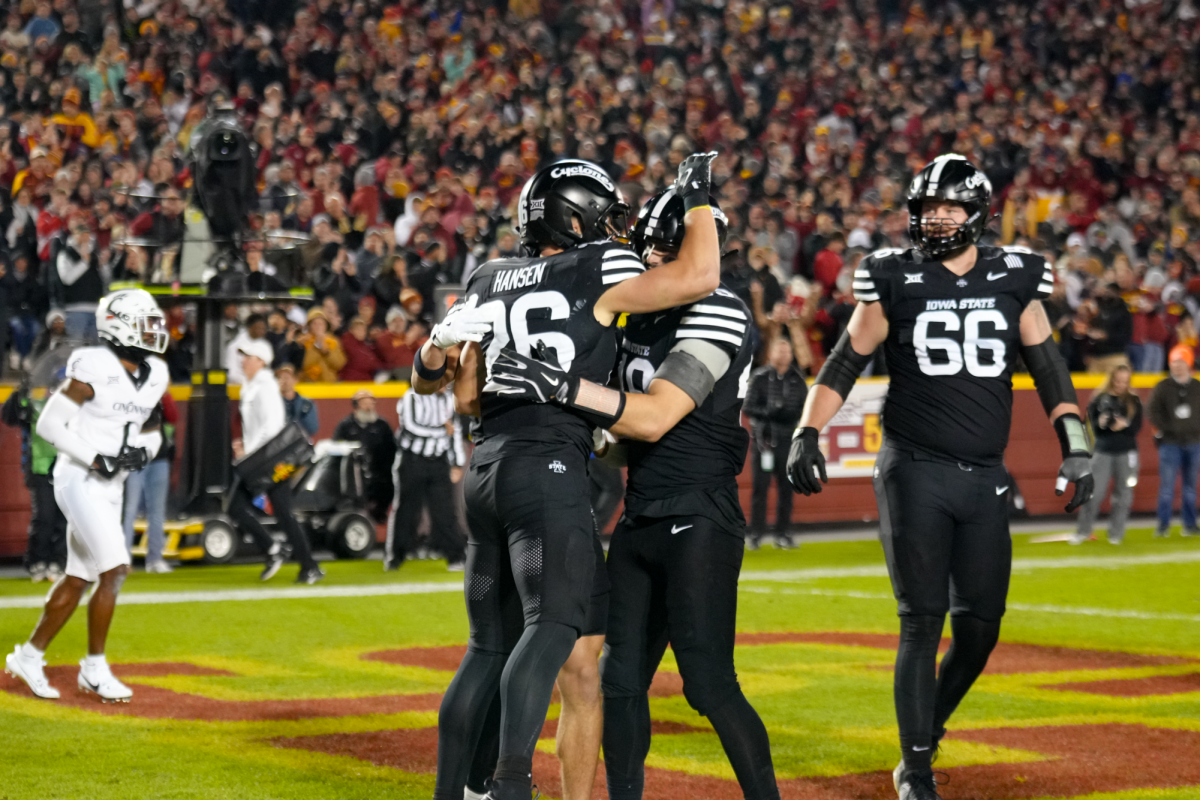COLUMN: Sniper lawsuit could kill legal immunity bill
January 22, 2003
This week the surviving relatives of some of the victims of last year’s sniper attacks, initially the families of James Buchanan and Conrad Johnson, later joined by others, filed a civil lawsuit. Both the manufacturer and the gun shop that handled the gun used in the attacks are defendants in the case.
The assault rifle recovered in the car of John Allen Muhammad, 41, and Lee Boyd Malvo, 17, was a Bushmaster XM15 E2S .223-caliber. This is a semi-automatic game rifle, popular for sport range shooting.
Bushmaster Firearms Inc., a Maine-based company, provided the weapon to Bull’s Eye Shooter Supply of Tacoma, Wash. Less than three months after the gun arrived at the Tacoma gun shop, it was allegedly being used to commit a crime.
Neither of the alleged snipers could have purchased the weapon legally. Muhammad had a domestic violence-related restraining order against him and Malvo was underage and an illegal immigrant. If standard legal sale of this gun had occurred, the men would not have had it in their possession.
Allen Faraday, vice president of administration for Bushmaster, said the company did nothing wrong and sold the rifle legally to a firearms dealer. “We naturally don’t feel it’s legitimate,” Faraday said of the lawsuit. “Nowadays, lawyers are looking to file lawsuits wherever they can.”
When Brian Borgelt, the owner of Bull’s Eye Shooter Supply, was approached and questioned concerning the weapon after the arrest of the two men, he stated that it was still in his shop. However, when the factory gun box was opened, it was revealed to be empty. Illegal sale, combined with possible employee theft, had passed it from the hands of a licensed dealer to men who were not allowed by law to own such a weapon.
Along with the killings in Washington, D.C., Maryland and Virginia, the men are now suspects for murders in Alabama, Louisiana and Washington. State inspectors are continuing to scour through unsolved cases searching for possible ties to the two men.
The Bureau of Alcohol, Tobacco and Firearms is supposed to inspect gun dealers on a roughly annual basis. Dealers are required by law to maintain their records in preparation for these inspections.
In June of 2000, auditors found that there were 150 firearms unaccounted for by Bull’s Eye. Another audit following the tracing of Muhammad and Malvo’s weapon back to the shop revealed 78 more missing weapons.
Of course, even though the shop was found to be negligent in record keeping and quite capable of simply allowing guns to disappear, they were allowed to remain in business after the year 2000 audit. Is it Bushmaster’s fault that they sold firearms to a licensed dealer? Do you expect a business in this capitalist system to turn down a legal customer?
The lawsuit comes after attempts by the National Rifle Association and gun lobbyists to pass a bill granting the gun industry legal immunity. This would make both firearm manufacturers and dealers immune to lawsuits such as the one filed by the Brady Center. The bill was dropped last year following the sniper attacks.
The verdict of the present lawsuit could determine the future feasibility of the gun industry immunity bill. If either Bushmaster or Bull’s Eye, or both, are found to be partially responsible in the deaths and injuries of the sixteen people harmed by the weapon in question, the bill would have little chance of passing in future legislative sessions.
The entire scenario raises many questions. Advocates on both sides of the issue hold strong views. One group claims the right to bear arms while the other claims a right to personal safety.
I grew up in Wyoming. In this state, it’s legal to purchase guns privately. This means that a legal dealer doesn’t have to authorize the sale of a firearm between two individuals.
This means that in my home state, it’s not even really necessary for a licensed firearms dealer to be incompetent for a gun to get into what you could call the “wrong” hands. Will more laws tightening the sales of weapons through dealers truly cut off criminals from the weapons they use?
It is a complicated issue, but one thing seems clear to me: If a gun dealer fails to pass the ATF inspections, they shouldn’t be a dealer anymore. If there are no repercussions for keeping poor records, there is little reason for a dealer to worry about it.
With the drastic fear that arose last year with the murders, I see a good chance of new legislation tightening gun control. But I’m also quite certain that gun violence won’t stop. Besides, a determined killer will always be able to find another weapon.
Nathan Galloway is a senior in biology from Sheridon, Wyo.






